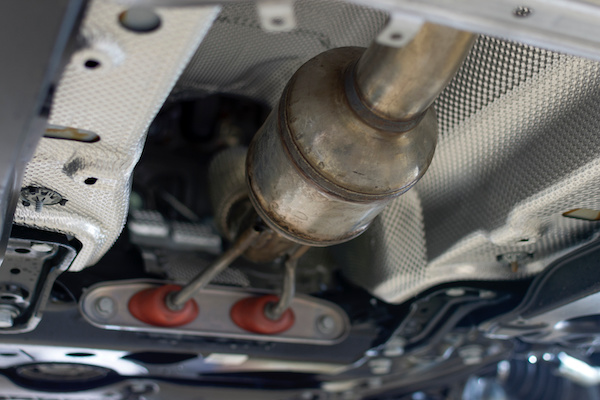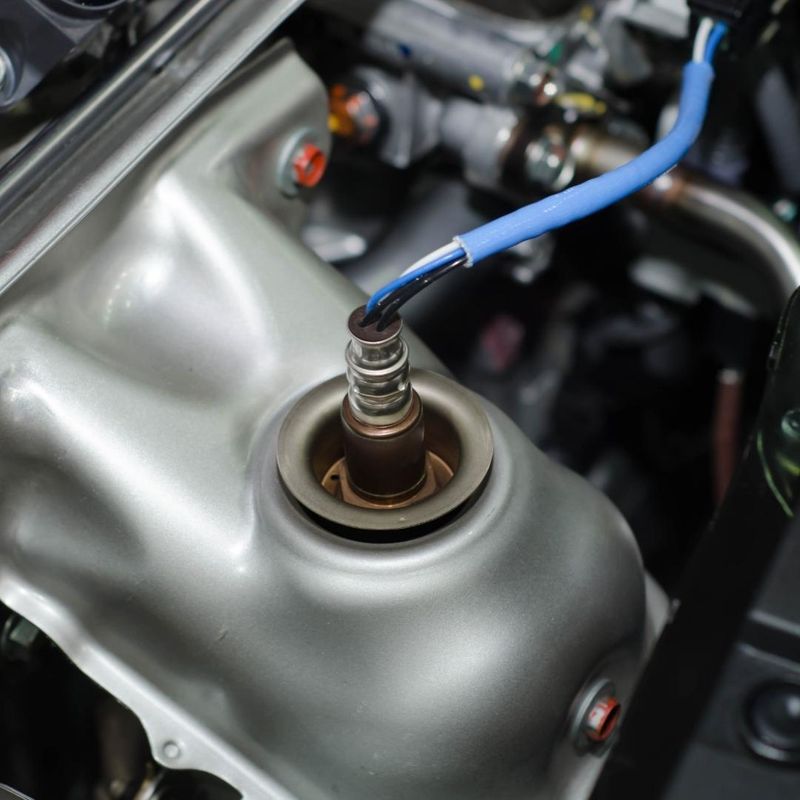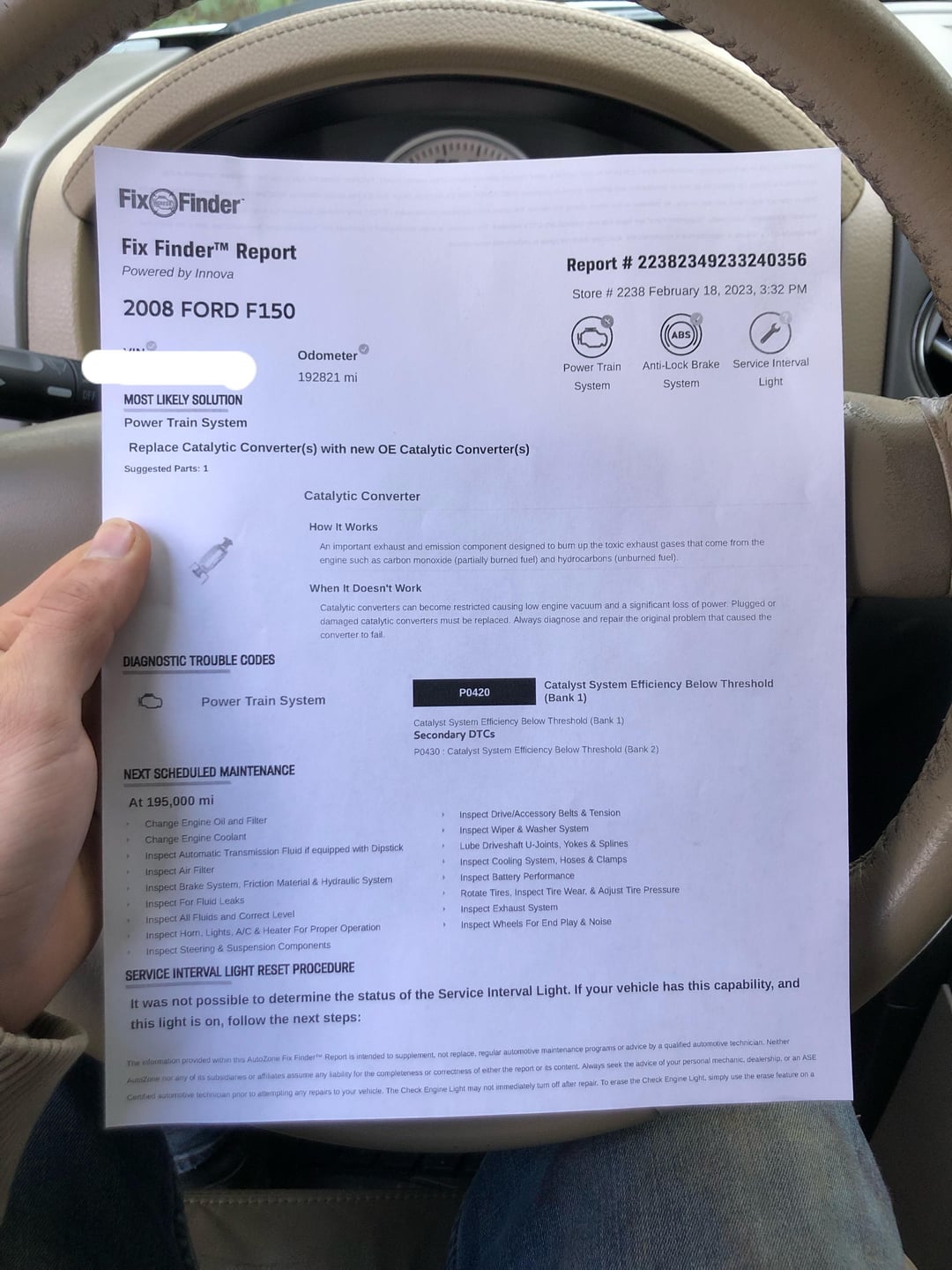Yes, a catalytic converter can cause the check engine light to come on. This happens if there is an issue with the converter, like a blockage or failure.
The check engine light is a warning system in modern vehicles. It alerts drivers to potential problems. One common cause is the catalytic converter. This component helps reduce harmful emissions. When it malfunctions, it can trigger the check engine light.
Understanding the link between the catalytic converter and this warning light is important. It can save you time and money. Ignoring this light can lead to bigger issues. In this post, we will explore how and why a catalytic converter might cause the check engine light to appear. This will help you take the right steps to fix the problem.

Credit: www.autotechiq.com
Catalytic Converter Basics
The catalytic converter is vital for your car. It changes harmful gases into safer ones. This helps the environment. The engine creates gases that can pollute the air. The converter stops this. It uses a chemical process. This process is called catalysis. It converts carbon monoxide into carbon dioxide. It also changes nitrogen oxides into nitrogen and oxygen. Lastly, it turns hydrocarbons into carbon dioxide and water.
The catalytic converter is crucial. It keeps the air cleaner. This part also helps your car pass emissions tests. Without it, your car may fail the test. This part also protects your engine. A damaged converter can cause many problems. The check engine light may come on. Fixing it quickly is important. A working converter is good for your car and the environment.

Credit: www.rainierauto.com
Check Engine Light Causes
A check engine light can turn on for many reasons. Some common causes include a loose gas cap, faulty oxygen sensor, or spark plug issues. Even minor issues can trigger the light. It’s important to get it checked to avoid bigger problems.
A faulty catalytic converter is a common cause of the check engine light. This part helps reduce harmful emissions from your car. If it fails, your car may produce more pollutants. This can trigger the check engine light. Sometimes, a bad converter can also reduce engine performance. Fixing it quickly can save you money and keep your car running smoothly.
Symptoms Of Catalytic Converter Problems
A clogged catalytic converter can cause poor engine performance. The car may feel sluggish. Acceleration can become slow. Fuel efficiency drops. You may need to press the gas pedal harder. This uses more fuel.
The car may make weird sounds. You may hear rattling or hissing. These noises come from the exhaust. The converter might be damaged. Strange sounds mean trouble.

Credit: www.fcmuffler.com
Diagnosing Catalytic Converter Issues
OBD-II codes help find car problems. A common code for the catalytic converter is P0420. This code means the catalyst system is below threshold. Other codes may point to related issues. OBD-II scanners read these codes. These tools are very helpful. They save time and money. Knowing the codes can help diagnose the problem quickly.
Check the catalytic converter for damage. Look for dents or rust. Exhaust leaks near the converter can cause issues. Listen for unusual noises. A rattling sound means the converter might be broken. Inspect the sensors and wiring. Loose connections can trigger the check engine light. Always ensure everything is secure. A good visual check can spot many problems.
Repairing Catalytic Converter
A professional mechanic can diagnose the problem. They have tools and knowledge. They will inspect the converter. They can replace it if needed. Experts know how to fix it properly. They can solve other engine light issues too.
Some people like to fix things on their own. They can use a cleaner for the converter. Cleaning can help if it is clogged. Make sure to follow the instructions. Sometimes it works. But be careful. DIY might not solve big problems.
Preventing Catalytic Converter Damage
Regular maintenance is key. Check your car’s system often. Look at the exhaust. Listen for strange noises. Bad sounds can mean trouble. Replace old parts before they break. Change oil on time. Keep a schedule.
Use quality fuel always. Cheap fuel can harm your car. Bad fuel leaves deposits. Deposits clog the converter. Clogged converters make the engine light come on. Choose trusted brands for fuel. Your car will run better. Better fuel means a healthy converter.
Cost Of Catalytic Converter Replacement
The average cost of replacing a catalytic converter can be quite high. Prices usually range from $500 to $2,500. The cost depends on the make and model of your car. Some luxury cars may cost even more. Labor charges also add to the total cost.
Several factors can affect the cost of a catalytic converter. The type of vehicle you have is one of them. Newer models often have more expensive parts. The location of the repair shop also matters. Urban areas tend to have higher labor rates. The brand of the converter can also impact the price. Some brands are more expensive but offer better quality.
Legal Considerations
Environmental laws are strict. Catalytic converters help reduce pollution. Failing to fix a faulty converter can lead to fines. It’s important for your car to pass emissions tests. The check engine light signals a problem. Ignoring it may cause legal issues. Always address the light promptly. Protect the environment and your wallet.
Environmental Regulations
Every car must meet emission standards. These standards vary by state. A bad converter affects the air we breathe. Authorities monitor car emissions closely. Keeping your car in good shape is key. The check engine light often relates to emissions. Ensure your car complies with laws. This helps keep the air clean.
Warranty Issues
Car warranties cover specific parts. Catalytic converters may be under warranty. Check your car’s warranty details. Ignoring the check engine light could void the warranty. Fixing issues early can save money. Warranties often require timely repairs. Keep records of all repairs. This helps with future claims.
Frequently Asked Questions
Will A Catalytic Converter Make A Check Engine Light Come On?
A faulty catalytic converter can trigger the check engine light. It impacts emissions, causing the light to activate.
What Are The Symptoms Of A Bad Catalytic Converter?
A bad catalytic converter shows symptoms like reduced engine performance, poor fuel economy, and a rotten egg smell. You may also notice the check engine light on, difficulty starting the car, and increased emissions.
How Long Does It Take For Check Engine Light To Go Off After Replacing Catalytic Converter?
The check engine light typically goes off after driving for 50-100 miles post replacing the catalytic converter.
Can You Drive A Car With A Bad Catalytic Converter?
Yes, you can drive a car with a bad catalytic converter, but it is not recommended. Reduced performance and increased emissions can occur.
Conclusion
A faulty catalytic converter can trigger the check engine light. Regular maintenance helps avoid such issues. If the light comes on, get your car checked soon. Ignoring it might lead to bigger problems. A mechanic can diagnose and fix the problem quickly.
This keeps your car running smoothly. So, pay attention to the check engine light. It’s there for a reason. Your car will thank you. Safe driving!

